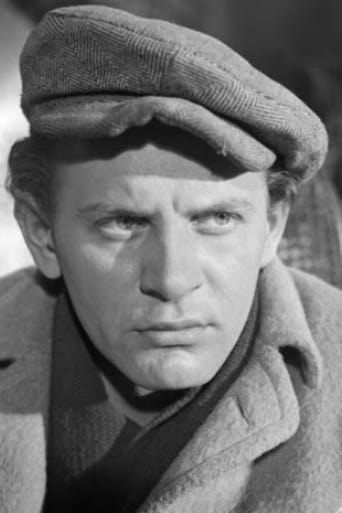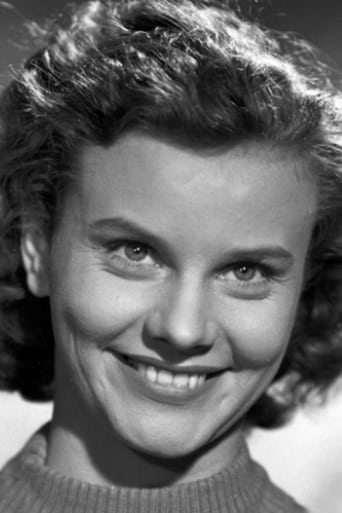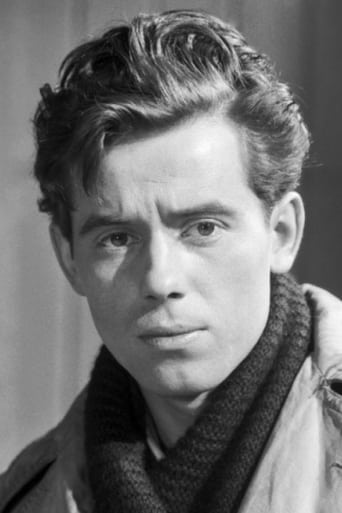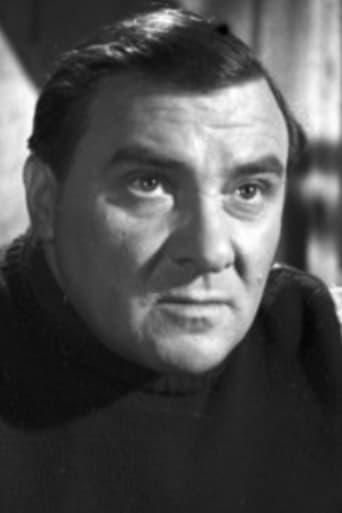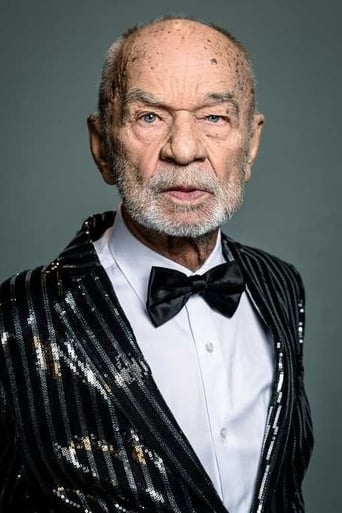Art Vandelay
The Nazis were evil. It's tragic if the Poles rallied their subversive efforts around an even more-murderous ideology.
I'd like to think this particular slant was chosen so the film-makers could slide the flim by their commie overlords of the 50s, and not b/c anybody 10 years into the commie occupation could possibly believe Marxism had anything to offer them.
Still, if you can get by that point, it's an interesting story about the Polish underground as acted out by teenagers, for the most part.
TCM should change its synopsis of this movie: ''A young man loves a resistance fighter in WWII Poland." That barely qualifies as a red herring.
chuckchuck21
A GENERATION- written, produced & directed by Andrzej Wadja it is the first war movie in what has become known as his war trilogy. It is a film covering Warsaw through the uprising in the Ghetto of Warsaw. This isn't based primarily on the Nazi actions of that time but is rather a straight forward look at what life was like for the populace, working by day in German held companies & resisting by night. It doesn't take a strong stomach to watch this & I believe that is by design.Focused mainly on the daily hardships of being Polish in Poland during the occupation & the common tragedies suffered by all around Warsaw it is an entirely different condemnation of war & its effects on a local population. The next movie called KANAL focuses on the general uprising outside of the Ghetto in Warsaw. In A GENERATION you get an introduction to the Polish resistance & the Communist resistance efforts. The trilogy is finished by ASHES & DIAMONDS which covers the end of WWII.A truly significant effort to portray Poland in WW-II & heartily recommended unless you must have high adrenaline action. This isn't anyone's propaganda. It's not propaganda at all. History on film as much as a fictional movie can be & recognized as the foundation of the Polish New Cinema School. It is a condemnation of war & its effects.
Cosmoeticadotcom
Sometimes films get reputations way out of proportion with their artistic merit simply because they expound a point of view that the public, or critics, like or agree with. Such is the case with the first feature length film from Polish film legend Andrzej Wajda. Released in 1955, the 87 minute long black and white film A Generation (Pokolenie), is not a particularly good film. No, it's not a bad film, but it visually resembles a mediocre 1940s film noir admixed with a touch of Italian Neo-Realism from its blighted and impoverished landscapes. Its characters, such as they are, are not realistic, and merely one dimensional tools for the agitprop that is at the heart of the film.Yes, one must realize that the film needed to be green lighted by Polish censors, but unlike the ways a more mature Wajda, and later filmmakers like Roman Polanski (who has a small acting role in the film) and Krzysztof Kieslowski (called the Polish School), would, A Generation plays out more like a Primer for Communism. It became part of a de facto War Trilogy of films made about Poland's World War Two Experience, and it is packaged by The Criterion Collection as part of a Three War Films collection, along with Kanal and Ashes and Diamonds (Popiół I Diament). Hopefully the two later films provide more true cinema to be savored .The cinematography by Jerzy Lipman is solid but unspectacular, and the scoring not even up to Hollywood B film melodrama standards. Often, mediocre films like this are defended by acolytes on grounds that its visuals are 'pure cinema,' or some such. Well, this one's are not, but even were the mise-en-scene great, it would not make up for the leaden acting, dull script, and agitprop galore. Given that an average feature film will have dozens to hundreds of framed shots, the laws of average, and random chance, will demand that a few will be well-composed. So? It's whether or not a far greater number than average are which matters. Or whether or not the few that are are super-poetic, or the like. Then, one might have an argument over the visual elements raising up the bar for the film. A Generation lacks that, all of that.Similarly, although it is reasonable to argue that the Marxist references in the film were intended, at the time, as a sly backhanded critique of the system, none of that matters now, as it is simply blatant agitprop. Great art rises above such strictures, and the idiocies of would be censors. Minor anachronisms- such as a racist caricature of a black man on a cuckoo clock, are not as egregious, since it is emblemic of the times and its attitudes. Overall, A Generation does show some promise, especially in the Jasio Krone character, and a few scenes of realistic interplay, such as when Dorota and Stach first have sex, because she refuses to let him leave after the Nazi curfew has come. But, these are few. Wajda may have gone on to become a great filmmaker, but that grace is not evident here. Perhaps that is another legacy of art in totalitarian states, inside or outside a celluloid frame.
futures-1
"A Generation" (Polish, 1954): This is the first of a war trilogy by Andrzej Wajda. Photographed in rich black & white, "A Generation" is about the youth of Poland, who joined underground rebellions against the Nazis. They formed small "cells" (sound familiar?) of fighters, used pseudonyms, and seldom met with larger groups – for the sake of secrecy and safety. The photography is wonderful (the long opening scene is alone worth the price of admission), the acting is great to average (with a TEENAGED Roman Polanski in one of the supporting roles!), and the dialog gives insight into kids who must grow up overnight and become not merely premature adults, but calculating killers. Made less than a decade after the war, this film depicts the serious, accurate, and even on extremely rare occasion, lighthearted moments that made up their lives. "Kanal" (1957), and "Ashes & Diamonds" (1958) follow.

